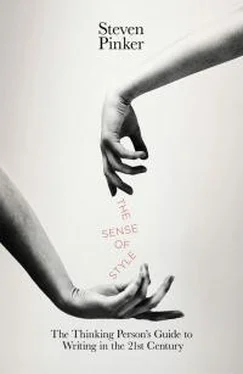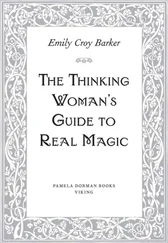averse, disinclined (*
I’m not adverse to doing that
.)
It should be
I’m not averse to doing that.
appraise
ascertain the value (
I appraised the jewels
.)
apprise, inform (*
I appraised him of the situation
.)
It should be
I apprised him of the situation.
as far as
As far as the money is concerned, we should apply for new funding.
*As far as the money, we should apply for new funding.
The
is concerned
(or
goes
)
is redundant and wordy, but without it readers wait for the other shoe to drop. The error is encouraged by the lure of the similar
As for,
which needs no such continuation.
beg the question
assumes what it should be proving (
When I asked the dealer why I should pay more for a German car, he said I would be getting “German quality,” but that just begs the question
.)
raises the question (*
The store has cut its hours and laid off staff, which begs the question of whether it will soon be closing
.)
The “raise the question” sense is more transparent (particularly when the question is urgent, as if it were begging to be raised), and it is common enough that many dictionaries list it. But the “circular reasoning” sense is standard in the scholarly communities that originated the expression and has no good substitute, so using
beg
to mean “raise”
will irritate such readers.
bemused
bewildered
amused
Dictionaries and the Usage Panel are clear on this.
cliché
noun (
Shakespeare used a lot of clichés
.)
adjective (
*“To be or not to be” is so cliché
.)
Don’t be fooled by the French –
é,
which often creates adjectives like
passé
and
risqué;
the adjective is
clichéd,
“being a cliché,” analogous to
talented,
“having talent.”
credible
believable (
His sales pitch was not credible.
)
credulous, gullible (*
He was too credible when the salesman delivered his pitch
.)
–
ible
and –
able
mean “able,” in this case “able to be believed, able to be credited.”
criteria
plural of
criterion
(
These are important criteria
.)
singular of
criterion
(*
This is an important criteria
.)
Nails on a chalkboard.
data
plural count noun (
This datum supports the theory, but many of the other data refute it
.)
mass noun (*
This piece of data supports the theory, but much of the other data refutes it
).
I like to use
data
as a plural of
datum
, but I’m in a fussy minority even among scientists.
Data
is rarely used as a plural today, just as
candelabra
and
agenda
long ago ceased to be plurals. But I still like it.
depreciate
decrease in value (
My Volvo has depreciated a lot since I bought it
).
deprecate, disparage (*
She depreciated his efforts
.)
The “disparage” sense is not a malaprop, and it’s accepted in dictionaries, but many writers like to reserve that sense for
deprecate
.
dichotomy
two mutually exclusive alternatives (
the dichotomy between even and odd numbers
)
difference, discrepancy (*
There is a dichotomy between what we see and what is really there
.)
A tacky attempt to sound fancy-shmancy. The
tom
means “cut,” as in
atomic
(originally “unsplittable”),
anatomy,
and
tomography
(x-ray cross sections).
disinterested
unbiased; without a vested interest (
The dispute should be resolved by a disinterested judge.
)
uninterested (*
Why are you so disinterested when I tell you about my day?
)
The “uninterested” sense is older, and has a continuous and respectable history. But since we have the word
uninterested
and lack an exact synonym for
disinterested
, readers will appreciate your maintaining the distinction.
enervate
sap, weaken (
an enervating commute
)
energize (*
an enervating double espresso
)
Literally “to remove the nerves” (originally “to remove the sinews”).
enormity
extreme evil
enormousness
The allegedly incorrect usage is both old and common, but many careful writers reserve
enormity
for evil. Some use
enormity
in the hybrid sense “deplorable enormousness,” writing of the
enormity
of population pressure in India, the task faced by teachers in slums, or the stockpile of nuclear weapons.
flaunt
show off (
She flaunted her abs
.)
flout (*
She flaunted the rules
.)
A malaprop based on the similar sound and spelling, together with the shared meaning “brazenly.”
flounder
flop around ineffectually (
The indecisive chairman floundered.
)
founder, sink to the bottom (*
The headstrong chairman floundered.
)
In practice
flounder
and
founder
are often interchangeable, being two ways of slowly failing. To keep them straight, remember that
to flounder
is what flounders do;
to founder
is related to other bottom-words like
foundation
and
fundamental.
fortuitous
coincidental, unplanned (
Running into my ex-husband at the party was purely fortuitous
.)
fortunate (*
It was fortuitous that I worked overtime because I ended up needing the money
.)
Many writers, including a majority of the Usage Panel, approve the “fortunate” sense (particularly in the hybrid sense of good luck), and it is recognized in most dictionaries. But some readers still bristle.
fulsome
unctuous; excessively and insincerely complimentary (
She didn’t believe his fulsome valentine for a second.
)
full, copious (*
a fulsome sound; *The contrite mayor offered a fulsome apology
.)
The “copious” sense is historically respectable, but the Usage Panel hates it, and it could get you into trouble, because readers may assume you’re impugning something when you don’t mean to.
homogeneous
with the suffix
-eous
, pronounced “homogenius”
with the suffix
-ous
, pronounced like “homogenized”
homogenous
is listed in dictionaries, but it’s a corruption which crept in after homogenized milk became popular. Similarly,
heterogeneous
is preferable to
heterogenous
.
hone
sharpen (
hone the knife, hone her writing skills
)
home in on, converge upon (*
I think we’re honing in on a solution
.)
AHD
Читать дальше












